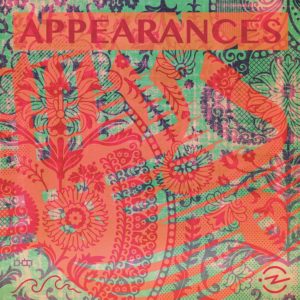It seems as if everyone is a podcaster these days — everyone except maybe fiction writers. The format is perfectly suited to capturing comedians in conversation, delivering journalistic deep dives, or unraveling salacious mysteries, but few fictional podcasts seem to take off.
Maybe that’s because it’s difficult to hold the details of a setting or cast of characters in our minds when we hear them while driving, or cleaning the house, or doing anything less focused than lending the absolute attention demanded by reading. The fact that podcasts provide permission to multitask is part of their appeal. But that also makes it difficult for narrative audio — even well-paced, celebrity-performed audio — to rival a novel or film in its storytelling.
Sharon Mashihi’s work is the exception.

A performer, fiction writer, documentarian, and sound painter, Mashihi likes to use audio, she says, to “bottle up real-life moments.” She hopes to capture some at Twenty Summers in what she is calling a “performative lecture” on June 4.
Mashihi is perhaps best known as the creator and host of Appearances, a podcast released in 2020. In it, she explores the tension between her character, Melanie, who wants to have a child as a sole parent, and the expectations of her traditional Iranian-American family.
Mashihi’s parents each came to New York before the Iranian revolution of 1979. Her work plumbs and fictionalizes the complexities of growing up in a Persian and Jewish enclave in Great Neck, N.Y. It uses alternating formats — sometimes diaristic, sometimes with author and character in dialogue — alongside shifting perspectives, all voiced by Mashihi, to create a portrait of a family in crisis over differing values. She plays 36 distinct characters in the series.
Appearances wasn’t Mashihi’s first audio work. Her 2018 Man Choubam (I Am Good), which garnered the Third Coast International Audio Festival Silver Award, also examines her relationship with her mother. But it is a documentary, while Appearances fuses the genres of memoir and fiction.
For Mashihi, personal storytelling starts with recognizing the different characters that live in our minds. “My experience of being inside my mind is that there are multiple voices, and the voices are always talking,” she says. “One of the pleasures of working in audio is externalizing these voices.”
“I feel like I am constitutionally sorry,” Melanie says in Appearances. She’s considering why she feels shame in assuming the role of a woman who is looking for a partner in order to have a child. “I am unfortunately guided through my life by seeking the approval of the other,” she confides to a friend. “And that makes me sad for myself, but it also makes me sad for the person I could be to the world.”
Appearances is full of emotionally arresting moments that segue unexpectedly into laughter. Melanie’s mother, Vida, explains what it’s like to be a first-generation immigrant by asking Melanie to imagine leaving for a fictional country, only to find that, once there, “your children hate pasta and pizza. They cannot believe you find it delicious. … They say to you, ‘Mom, we are not American, we are Moscostanian.’ And ‘Mom, you’re so stupid you have not understood basic things about Moscostanian culture.’ ”

Part of the reason Mashihi’s work is so compelling is her pacing. She crafts her audio storytelling to meet her own attention span, which she acknowledges is extremely short. “It has turned out to be a gift in disguise that I am actually a really bad listener,” Mashihi says.
She’s aware of how our minds can wander while listening to even the most intriguing audio stories. To keep people engaged, she says, she sprinkles “lots of candy” through her pieces — by which she means “lots of variety, lots of story turns.”
There are also many layers of cadence, rhythm, and mood in her work that give a listener the feeling of living through the experiences Mashihi narrates. She layers sound to create thick narrative webs.
Mashihi’s recording style lends authenticity to her stories. You can hear, for example, a character’s breath. “There is something so special about being there to catch the real moment,” she says, “when you can hear in the person’s breath that they’ve actually just surprised themselves.”
When you work with words and sound at the same time, Mashihi says, “the words are being built for the sound.” Rather than writing the text for each episode in advance, she composes narrative alongside the sound engineering — a process she says is akin to painting. “That’s the real pleasure,” she says, “when I learned how to start making audio like it was painting.”
Mashihi hopes that her talk at Twenty Summers will be the beginning of a new project. As she does in her audio recordings, Mashihi is looking for the experience to generate surprise in herself and, possibly, in her audience. “As we’re there together,” she said, “maybe we’ll catch a few real moments.
“I think that in live performance,” Mashihi adds, “one of the great gifts that you could give is your own vulnerability, and to perhaps invite the people in the room to feel their own, and to have this moment of communion through that.”
Inner Voices
The event: “Diva Dancing, Zen Monk,” a performative lecture by Sharon Mashihi
The time: Saturday, June 4 at 6 p.m.
The place: The Hawthorne Barn, 29 Miller Hill Road, Provincetown
The cost: $20 suggested donation; 20summers.org, or 508-812-027
